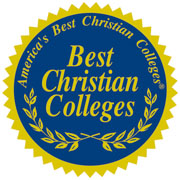
Currently, there are more than 450 theological educational institutions that are partnered with the ACU. These are located in Bangladesh, Benin, Bulgaria, Cameroon, India, Ireland, Liberia, New Zealand, Netherlands, Mexico, Nigeria, Pakistan, Spain, Togo, United Kingdom, United States, Zambia and numerous other countries.
There are two types of membership in ACU, which are associate member and accredited member.
An Associate Member is a theological educational institution which abides by the World Evangelical Fellowship Statement of Faith.
An Accredited Member is a theological educational institution that has programs accredited by the Association of Christian Universities (ACU). Associate members are encouraged to later become accredited members. Over 90% of ACU members are accredited members. Both associate and accredited members pay annual membership fees.
Application of membership in the ATA is the first step in seeking accreditation and fellowship. Membership Application fee is US$60 . Application should be sent to the ACU 7508 Maria Avenue, Louisville, KY 40222. Annual membership fee of US$215.00 upon approval of membership status.
ACCREDITATION
ACU seeks to facilitate the improvement of the quality of educational programs of its members through accreditation of programs, whether residential, extension, and other combination of systems. A manual is available for anyone interested. The accreditation model that ACU has adopted is based on four key principles:
Values: Values are central to the design and practice of education. Throughout the accreditation process, an attempt has been made to focus attention as much on why policies or practices are observed, as on the policies and practices themselves. Four categories of value inform the accreditation philosophy. These are administrative values, relational values, theological values, and educational values.
Process: The accreditation process should lead to significant institutional improvement. Educators should not be disheartened, therefore, when the self-evaluation study reveals areas of their programs that require further attention. This is expected and can provide important benefits.
Cooperation: Accreditation should involve both the accrediting agency and those persons who belongs to or benefit from the examined program. While roles are different, cooperation in the evaluation process affords the surest route to just and significant conclusions.
Prayer: Evaluation
of theological education should be undertaken prayerfully, just as all ministry
training is undertaken. Prayer should be part of every step in the evaluation
and accreditation process.
The accreditation process involves the preparation of the self-study by the
institution, the visit by a team of theologians and educators, the approval of
the Commission on Accreditation. Institutions interested in the accreditation
service pay a visiting fee, in addition to taking care of the travel and
hospitality expenses of the team. Normally, teams visit several schools in one
country and expenses are distributed among the participating schools.